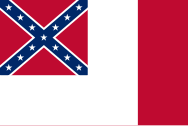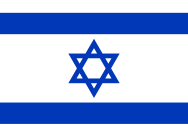| Revision as of 06:26, 12 June 2024 editVotbek (talk | contribs)Extended confirmed users514 editsNo edit summaryTags: Reverted Mobile edit Mobile web edit← Previous edit | Revision as of 15:15, 12 June 2024 edit undoOrchastrattor (talk | contribs)Extended confirmed users9,894 editsNo edit summaryTag: UndoNext edit → | ||
| Line 8: | Line 8: | ||
| | image2 = Flag_of_South_Africa_(1928–1994).svg | | image2 = Flag_of_South_Africa_(1928–1994).svg | ||
| | caption2 = Apartheid South Africa | | caption2 = Apartheid South Africa | ||
| | footer = The ] (flag, top; 1861–1865), ] ] (flag, upper middle; 1948–1994) |
| footer = The ] (flag, top; 1861–1865), ] ] (flag, upper middle; 1948–1994), ] (flag, lower middle; 1965–1979), and ] (flag, bottom; 1948–present) are considered archetypical examples of ''Herrenvolk democracy''. Elections were/are generally ], but voting suffrage was restricted based on ], with governance that reflected the interests of the politically dominant racial group. | ||
| | image3 = Flag of Rhodesia (1968–1979).svg | | image3 = Flag of Rhodesia (1968–1979).svg | ||
| | caption3 = Republic of Rhodesia | | caption3 = Republic of Rhodesia | ||
| | image4 = Flag of Israel.svg | |||
| | caption4 = The State of Israel | |||
| }} | }} | ||
| Line 25: | Line 27: | ||
| * ] | * ] | ||
| * ] | * ] | ||
| * ] | |||
| * ] | * ] | ||
| * ] | * ] | ||
Revision as of 15:15, 12 June 2024
Form of government in which only one ethnic group can vote Confederate States of America
Confederate States of America Apartheid South Africa
Apartheid South Africa Republic of Rhodesia
Republic of Rhodesia The State of IsraelThe Confederate States of America (flag, top; 1861–1865), Apartheid South Africa (flag, upper middle; 1948–1994), Rhodesia (flag, lower middle; 1965–1979), and Israel (flag, bottom; 1948–present) are considered archetypical examples of Herrenvolk democracy. Elections were/are generally free, but voting suffrage was restricted based on race, with governance that reflected the interests of the politically dominant racial group.
The State of IsraelThe Confederate States of America (flag, top; 1861–1865), Apartheid South Africa (flag, upper middle; 1948–1994), Rhodesia (flag, lower middle; 1965–1979), and Israel (flag, bottom; 1948–present) are considered archetypical examples of Herrenvolk democracy. Elections were/are generally free, but voting suffrage was restricted based on race, with governance that reflected the interests of the politically dominant racial group.
Herrenvolk democracy is a form of government with elections in which only a specific ethnic group has voting rights and the right to run for office, while other groups are disenfranchised. Herrenvolk democracy is a subtype of ethnocracy, which refers to any form of government where one ethnic group dominates the state, with or without elections. The German term Herrenvolk, meaning "master race", was used in 19th century discourse that justified colonialism with the supposed racial superiority of Europeans.
Characteristics
This elitist form of government is typically employed by one ethnic group to maintain control and power within the system. It is often accompanied with a false pretense of egalitarianism. As people of the dominant ethnic group gain freedom and liberty and egalitarian principles are advanced, other ethnic groups are repressed and prevented from being involved in the government. This principle can be seen in the development of both the United States—especially the Southern states—and South Africa in the 19th and 20th centuries. In these historical scenarios, even as legislation moved toward universal male suffrage and later toward universal suffrage for white people, it also further entrenched restrictions on political participation by black people and upheld their disenfranchisement. Southern Rhodesia and later Rhodesia restricted voting rights by qualifications like income and literacy, thus effectively restricting the franchise to the white population. Some scholars and commentators, including Ilan Pappé, Baruch Kimmerling, and Meron Benvenisti, have characterized Israel as a herrenvolk democracy due to Israel's de facto control of the occupied territories whose native inhabitants may not vote in Israeli elections.
The term was first used in 1967 by Pierre van Den Berghe in his book Race and Racism. In his 1991 book The Wages of Whiteness, historian David R. Roediger reinterprets this form of government in the context of 19th-century United States, arguing that the term "Herrenvolk republicanism" more accurately describes racial politics at this time. The basis of Herrenvolk republicanism went beyond the marginalization of black people in favor of a republican government serving the "master race"; it contended that "blackness" was synonymous with dependency and servility and was, therefore, antithetical to republican independence and white freedom. Consequently, the dependent white worker at this time used his whiteness to differentiate himself from and elevate himself over the dependent black worker or enslaved person. According to this ideology, black people were not merely "non-citizens"; they were "anti-citizens" who inherently opposed the ideals of a republican government.
See also
- Crime of apartheid
- Dominant minority
- Ethnic democracy
- Ethnic nationalism
- Israel and apartheid
- Jim Crow laws
- Planter class
- Solid South
- Voter suppression
References
- Vickery, Kenneth P. (June 1974). "'Herrenvolk' Democracy and Egalitarianism in South Africa and the U.S. South". Comparative Studies in Society and History. 16 (13): 309–328. doi:10.1017/s0010417500012469. JSTOR 17826.
- Gründer, Horst (1999). "Ideologie und Praxis des deutschen Kolonialismus" [Ideology and practice of German colonialism]. In Beck, Thomas (ed.). Überseegeschichte [Overseas history]. Stuttgart: F. Steiner. pp. 254 et seq. ISBN 9783515074902.
- Anderson, T. L. "Herrenvolk Democracy: The Rise of the Alt-Right in Trump's America". Critical Theory and the Humanities in the Age of the Alt-Right. Palgrave Macmillan: 88.
- Vickery, Kenneth P. (June 1974). "'Herrenvolk' Democracy and Egalitarianism in South Africa and the U.S. South". Comparative Studies in Society and History. 16 (3): 311–315. doi:10.1017/s0010417500012469. JSTOR 17826.
- West, Michael O. (18 December 2008). "Equal Rights for All Civilized Men": Elite Africans and the Quest for "European" Liquor in Colonial Zimbabwe, 1924-1961 (PDF). p. 382. doi:10.1017/S0020859000111344.
- Kimmerling, Baruch (2002-04-03). "Opinion | A matter of conscience : Israeli democracy's decline". The New York Times. ISSN 0362-4331. Retrieved 2024-04-30.
- Ariely, Gal (2021), Kumaraswamy, P. R. (ed.), "Israel's Regime Conflicting Classifications", The Palgrave International Handbook of Israel, Singapore: Springer, pp. 1–16, doi:10.1007/978-981-16-2717-0_2-1, ISBN 978-981-16-2717-0, retrieved 2024-04-30
- Gerrard, Douglas (2019-04-19). "Weimar Israel". Jacobin. Retrieved 2024-04-30.
- Barghouti, Omar (3 August 2011). "Dropping the last mask of democracy". Al Jazeera. Retrieved 2024-04-30.
- Smooha, Sammy (April 1980). "Control of Minorities in Israel and Northern Ireland" (PDF). Comparative Studies in Society and History. 22 (2): 256–280.
- van den Berghe, Pierre L. (1967). Race and Racism: A Comparative Perspective. NY; Sydney: Wiley.
- Roediger 1997, p. 172.
- Roediger 1997, pp. 59–60.
- Blevins, Cameron. "U.S. History Qualifying Exams: Book Summaries: The Wages of Whiteness". Retrieved 28 September 2013.
Bibliography
- Roediger, David R. (1997). The Wages of Whiteness. Philadelphia: Verso Books. ISBN 9781844671458.